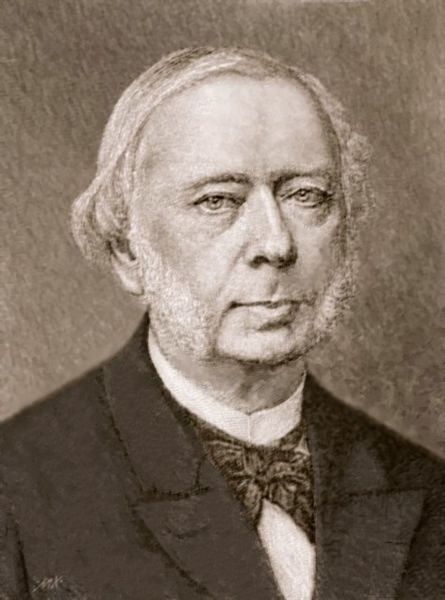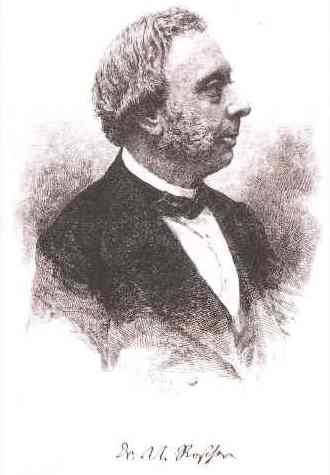<Back to Index>
- Economist Wilhelm Georg Friedrich Roscher, 1817
PAGE SPONSOR


Wilhelm Georg Friedrich Roscher (October 21, 1817 – June 4, 1894) was a German economist from Hanover.
He studied at Göttingen, where he became a member of Corps Hannovera, and Berlin, and obtained a professorship at Göttingen in 1844 and subsequently at Leipzig in 1848.
The main origins of the historical school of political economy may be traced to Roscher. Its fundamental principles are dated to his Grundriss zu Vorlesungen über die Staatswirtschaft nach geschichtlicher Methode (1843).
Roscher tried to establish the laws of economic development by using the historical method from the investigation of histories legal, political, cultural and other aspects.
Roscher developed a cyclical theory where nations and their economies pass through youth, manhood and senile decay.
“The method of a science is of greater significance by far than any single discovery, however amazing the later may be.” This was in direct contrast to the English traditional economist who believed that the principals of a science were only exposed long after they had performed their duties.
This short study was afterwards expanded into his great System der Volkswirthschaft, published in five volumes between 1854 and 1894, and arranged as follows:
- vol. i., Die Grundlagen der National Ökonomie, 1854 (trans. by JJ Lalor, Principles of Political Economy, Chicago, 1878) Volume One Volume Two;
- vol. ii., Die Nationalökonomik des Ackerbaues und der verwandten Urproduktionen,, 1859;
- vol. iii., Die Nationalökonomik des Handels und Gewerbfleisses, 1881;
- vol. iv., System der Finanzwissenschaft, 1886;
- vol. v., System der Armenpfiege und Armenpolitik, 1894.
His Geschichte der Nationalökonomie in Deutschland (1874) is a monumental work.
He also published in 1842 an excellent commentary on the life and works of Thucydides. In 1847 he was the first to use the term "enlightened absolutism" about the type of absolute monarchy influenced by contemporary philosophy that evolved in the 18th century.
In 1870, he was elected a foreign member of the Royal Swedish Academy of Sciences.